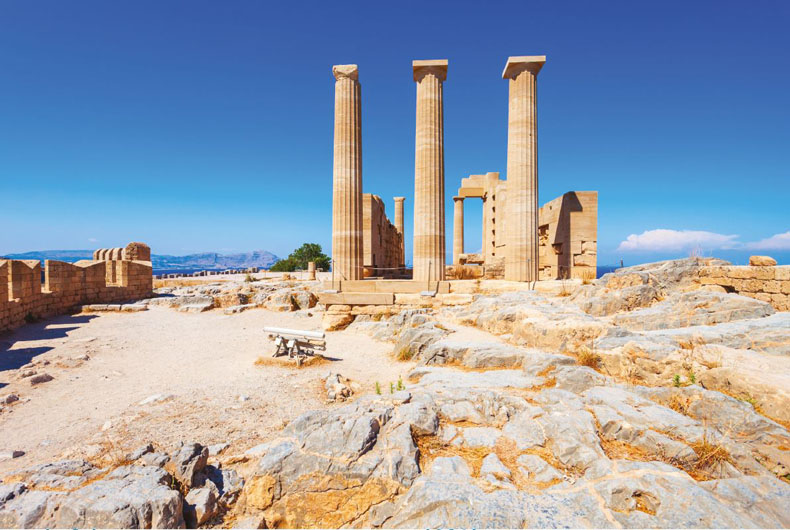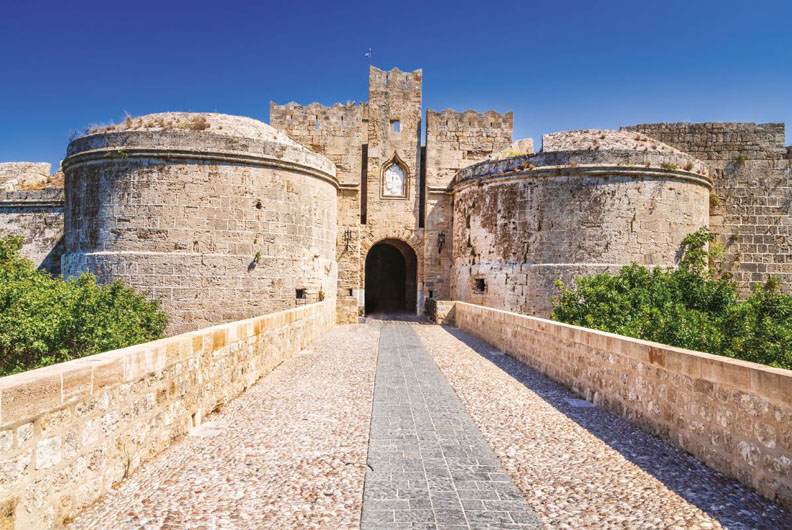Acropolis of Lindos and the Citadel of the Knights
Exceptional Décor
Let’s begin in unusual fashion, with what you won’t see in Rhodes. One of the Seven Wonders of the Ancient World once proudly stood here.
He was the Colossus of Rhodes and is of course long departed, probably destroyed by an earthquake.
Nevertheless as you arrive on this wonderful, historic island, you may just be able to imagine this statue of the Greek sun-god Helios in 280BC, standing 100 feet tall in celebration of Rhodes’ victory over Cyprus.
The largest of the Dodecanese islands, Rhodes has a compelling back story and there are still remnants of its occupation by the Knights of St John during the Crusades.
So while the Colossus may not be there, you will be wowed by the many historical sites.
We travel first to Lindos, about 55km from Rhodes Town and high above the village sits the impressive Acropolis of Lindos with the Doric Temple of Athena, built in 300 BC.
Captains’ mansions constructed between the 16th and 18th centuries are dotted here and there and in the heart of Lindos is the Church of the Virgin Mary with lovely frescoes from the 15th Century.
Back in Rhodes is where we are really immersed in the history of the island in the Knights’ Quarter.
We stroll through Gate d’Amboise to walk along the Street of the Knights and see where they lived, separated according to Order, their crests still visible today.
We will also see (outside) the imposing Palace of the Grand Master of the Knights of Rhodes, a medieval castle also known as the Kastello. It’s one of the few examples of Gothic architecture in Greece. The Byzantine citadel was built in the 7th Century, the palace itself in the fourteenth.
Where the palace sits today could well have been the spot where once stood the Colossus according to recent studies.
Either way, this tour takes us into the heart of the fascinating history of Rhodes.
Available on these itineraries
- All
- 3 Nights
- 4 Nights

 Santorini
Santorini 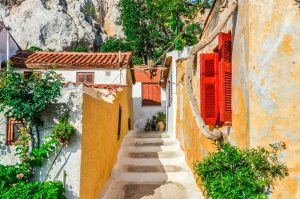 Athens
Athens 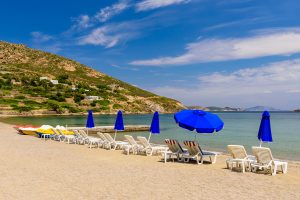 Patmos
Patmos  Istanbul
Istanbul 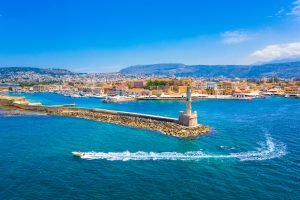 Crete
Crete 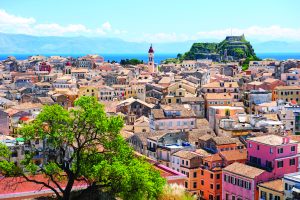 Corfu
Corfu 







 Deutschland (€)
Deutschland (€)
 Turkey (€)
Turkey (€)
